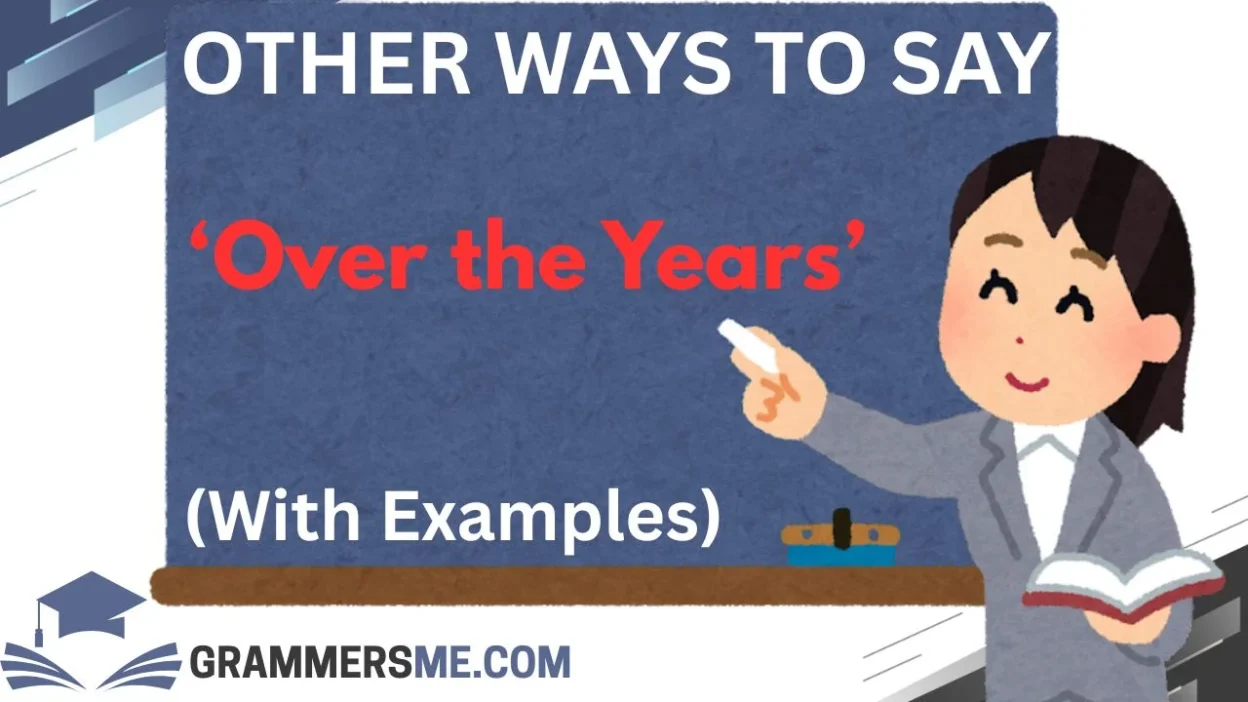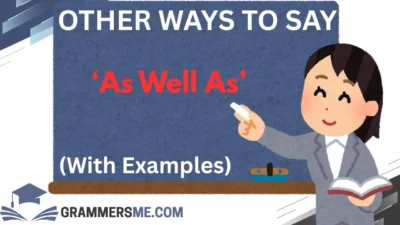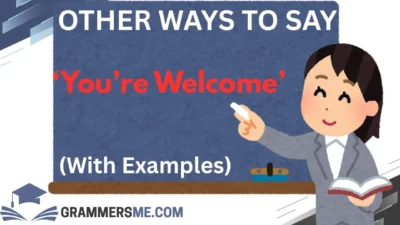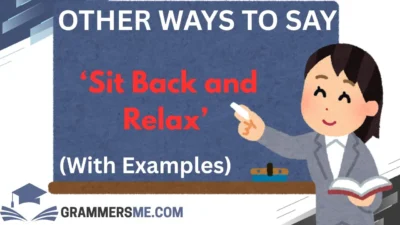Finding the right words to express ourselves—especially when talking about time, growth, or shared experiences—can add an extra layer of warmth and sincerity to our messages. “Over the years” is a beautiful phrase in itself, often used to reflect on change, progress, and long-standing connections.
But sometimes, you want something that feels a bit more personal, poetic, or professional, depending on the tone you’re going for. In this article, we’ll explore 30 thoughtful alternatives that can help you say “over the years” in more meaningful and creative ways.
What Does “Over the Years” Mean?
Meaning: “Over the years” refers to a period of time that spans across multiple years. It’s often used to reflect on gradual change, development, or continued activity during that time.
Explanation: This phrase usually appears in personal stories, professional growth narratives, or reflections. It brings a gentle emotional weight to any sentence, implying patience, endurance, and evolution.
Is It Professional/Polite to Say “Over the Years”?
Yes, absolutely. The phrase is widely accepted in both casual and professional communication. Whether you’re reminiscing with a friend or highlighting experience in a resume or cover letter, it’s a versatile and polite expression. However, switching it up now and then can bring freshness and emphasis to your message.
1. Through the Years
Meaning: A soft, sentimental way to express a span of time.
Explanation: Often used to reflect on memories or shared moments in a heartfelt way.
Example: Through the years, we’ve grown closer and learned so much from each other.
Best Use: Personal letters, anniversary notes, or speeches.
Not Ideal For: Technical reports or formal proposals—can sound too emotional.
2. Across the Years
Meaning: Implies a journey or consistency over a long time.
Explanation: Adds a poetic or storytelling tone, perfect for narratives.
Example: Across the years, her dedication never wavered.
Best Use: Storytelling, tributes, or creative writing.
Not Ideal For: Business emails unless used thoughtfully.
3. Over Time
Meaning: A more general, time-neutral phrase.
Explanation: Less emotional than “over the years,” but still useful.
Example: Over time, our strategy evolved significantly.
Best Use: Business contexts, reports, or casual speech.
Not Ideal For: Deeply personal messages—it can feel cold.
4. In the Long Run
Meaning: Refers to the bigger picture or results after many years.
Explanation: Often used to discuss outcomes or benefits that take time.
Example: In the long run, your consistency really paid off.
Best Use: Professional development or financial planning.
Not Ideal For: Sentimental reflections or memory-based stories.
5. With Time
Meaning: Suggests gentle progress or healing.
Explanation: Can be emotional or encouraging depending on the tone.
Example: With time, we learned to trust each other again.
Best Use: Supportive messages, healing conversations.
Not Ideal For: Academic or scientific writing—too vague.
6. Throughout the Years
Meaning: A very similar phrase to “over the years,” slightly more formal.
Explanation: Emphasizes ongoing effort or consistency.
Example: Throughout the years, she remained a constant source of inspiration.
Best Use: Speeches, tributes, and formal documents.
Not Ideal For: Very casual texts—can feel a bit stiff.
7. Over the Course of Time
Meaning: A formal variation that fits professional tone.
Explanation: Sounds deliberate and grounded in logic.
Example: Over the course of time, these patterns began to shift.
Best Use: Academic writing or workplace discussions.
Not Ideal For: Emotional stories—it lacks softness.
8. As Time Went On
Meaning: Implies gradual change.
Explanation: A reflective phrase that adds a narrative element.
Example: As time went on, we began to appreciate the little things more.
Best Use: Journals, storytelling, or reflection pieces.
Not Ideal For: Executive summaries or emails to clients.
9. Over Many Seasons
Meaning: A poetic, nature-inspired phrase.
Explanation: Great for storytelling or creating visual imagery.
Example: Over many seasons, their bond deepened.
Best Use: Creative writing, personal notes.
Not Ideal For: Technical writing or emails.
10. Down the Line
Meaning: Suggests future outcomes or long-term changes.
Explanation: Often used in forecasting or planning.
Example: Down the line, we may revisit this project with fresh eyes.
Best Use: Forward-looking business discussions.
Not Ideal For: Reflective or emotional content.
11. In Time
Meaning: A gentle, patient phrase that suggests change or understanding will come.
Explanation: Often used when talking about healing, learning, or evolving.
Example: In time, we came to understand each other better.
Best Use: Personal growth reflections or emotional conversations.
Not Ideal For: Technical updates or analytical writing.
12. Over the Decades
Meaning: Emphasizes a long span of time, often with weight or historical context.
Explanation: Useful when referencing significant changes or achievements.
Example: Over the decades, the organization has transformed remarkably.
Best Use: Historical narratives, professional or institutional timelines.
Not Ideal For: Light-hearted or casual communication—it can feel too heavy.
13. As the Years Passed
Meaning: Highlights the passage of time with a reflective tone.
Explanation: Adds a nostalgic or emotional layer to your sentence.
Example: As the years passed, we found new reasons to smile.
Best Use: Memoirs, personal writing, or storytelling.
Not Ideal For: Business presentations—can come across as too sentimental.
14. Since Then
Meaning: Refers to everything that happened after a specific moment in the past.
Explanation: Ties present outcomes to a meaningful moment in history.
Example: We met in 2010, and since then, our lives have never been the same.
Best Use: Relationship reflections or professional milestones.
Not Ideal For: General time references—it’s tied to a clear “starting point.”
15. In the Passing Years
Meaning: A poetic, slightly old-fashioned way to refer to time gone by.
Explanation: Conveys beauty, loss, or change gently.
Example: In the passing years, I’ve come to value simplicity more and more.
Best Use: Poetic writing, memorials, reflective posts.
Not Ideal For: Casual conversations or modern business settings.
16. During That Time
Meaning: Refers to a past time span without specifying how long.
Explanation: More neutral and flexible, useful in many contexts.
Example: During that time, the team developed a solid bond.
Best Use: Reports, resumes, or storytelling.
Not Ideal For: When you want to express emotional warmth.
17. All This Time
Meaning: Suggests consistency or surprise over a long duration.
Explanation: Often implies a discovery or realization after a long wait.
Example: All this time, I never knew how much that meant to you.
Best Use: Emotional realizations or intimate conversations.
Not Ideal For: Business updates—feels too informal.
18. Over the Past Few Years
Meaning: Narrows the time frame while keeping a reflective tone.
Explanation: Perfect when discussing recent progress or change.
Example: Over the past few years, our team has accomplished so much.
Best Use: Performance reviews, thank-you notes, or updates.
Not Ideal For: Long-term or historical reflections.
19. Over an Extended Period
Meaning: Formal and factual, emphasizes length.
Explanation: Works well in analytical or research contexts.
Example: The data was collected over an extended period for accuracy.
Best Use: Academic, scientific, or technical writing.
Not Ideal For: Personal or casual writing—it feels clinical.
20. As Time Went By
Meaning: Evokes a gradual, almost poetic passage of time.
Explanation: Similar to “as time went on,” but more lyrical.
Example: As time went by, we stopped needing to explain ourselves.
Best Use: Emotional stories, letters, or blog posts.
Not Ideal For: Reports or business emails—too expressive.
21. In Recent Years
Meaning: Reflects on developments or changes in the not-so-distant past.
Explanation: Great for drawing attention to more current evolution.
Example: In recent years, their focus has shifted to sustainability.
Best Use: Professional writing, articles, or commentary.
Not Ideal For: Long-term retrospectives—this limits the time scope.
22. In Years Past
Meaning: A literary way of saying “in the past.”
Explanation: Adds nostalgia or historical charm.
Example: In years past, this place was filled with laughter and life.
Best Use: Historical writing, memoirs, or reflective posts.
Not Ideal For: Formal business communication.
23. During the Years
Meaning: A simple, softer version of “over the years.”
Explanation: Works well when paired with specific actions or memories.
Example: During the years we worked together, I learned so much from you.
Best Use: Thank-you messages, farewell letters.
Not Ideal For: High-level summaries—it lacks precision.
24. Since Those Days
Meaning: Draws a direct emotional link to a distant past.
Explanation: Adds a nostalgic or wistful feeling.
Example: Since those days, life has taken us in different directions.
Best Use: Reunions, heartfelt reflections, personal storytelling.
Not Ideal For: Neutral or data-driven communication.
25. As the Seasons Changed
Meaning: A nature-based, poetic way to reference time.
Explanation: Suggests emotional change alongside time.
Example: As the seasons changed, so did our understanding of each other.
Best Use: Creative writing, blogs, or love letters.
Not Ideal For: Professional reports—it’s too figurative.
26. As the Months Rolled On
Meaning: Focuses on medium-term passage of time.
Explanation: Casual yet descriptive—works for storytelling.
Example: As the months rolled on, our project began to take shape.
Best Use: Casual updates or conversational writing.
Not Ideal For: When discussing long-term or decade-long trends.
27. In the Time Since
Meaning: Refers to everything that has happened after a moment.
Explanation: Ties the present back to a past milestone or event.
Example: In the time since her departure, the team has grown stronger.
Best Use: Leadership updates, team reflections.
Not Ideal For: Casual social media—it feels a bit formal.
28. Over Time and Distance
Meaning: Emphasizes both passage of time and physical change.
Explanation: Deep and introspective, often used in long-distance stories.
Example: Over time and distance, our connection never faded.
Best Use: Relationship letters, personal storytelling.
Not Ideal For: Business or academic writing.
29. With the Passing of Time
Meaning: Suggests emotional reflection as time goes on.
Explanation: Adds a solemn or graceful tone.
Example: With the passing of time, I’ve learned to forgive.
Best Use: Memorials, personal growth stories.
Not Ideal For: Light, casual content.
30. During the Course of the Years
Meaning: A formal and slightly more complex variation.
Explanation: Adds structure to a reflective or informative sentence.
Example: During the course of the years, our values have become clearer.
Best Use: Professional speeches, reflective essays.
Not Ideal For: Everyday conversation—too formal.
Conclusion
Language is full of nuance, and even a simple phrase like “over the years” can be said in countless other ways—each bringing a different emotional tone, level of formality, or poetic flair. Whether you’re crafting a heartfelt message, a professional update, or simply trying to express yourself with more care and clarity, these alternatives can help you do it with intention.
Choose the phrase that reflects your heart and suits your context. That’s the magic of language—it’s personal, powerful, and always evolving.
Frequently Asked Questions
1. What is the best professional alternative to “over the years”? “Over the course of time” or “In recent years” are strong professional choices.
2. Can I use these alternatives in a resume or cover letter? Yes! Opt for “Throughout the years,” “Over time,” or “In recent years” to maintain a polished tone.
3. What’s the most emotional or heartfelt alternative? “As the years passed” or “Over time and distance” convey deep, reflective emotion.
4. Are these alternatives suitable for speeches or presentations? Absolutely. Choose based on tone—“Through the years” works beautifully in speeches.
5. How do I know which one to choose? Think about the emotion, formality, and message you want to send. Let your tone guide your word choice.




